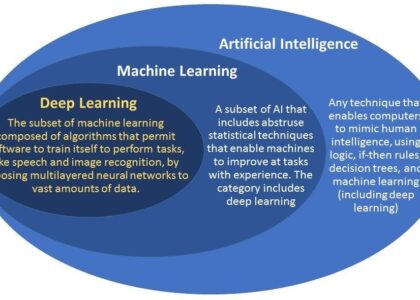The Role of Artificial Intelligence in Modern Marketing
Artificial Intelligence (AI) has rapidly become a cornerstone of modern marketing strategies, revolutionising the way businesses engage with their audiences. By leveraging AI technologies, marketers can create more personalised, efficient, and effective campaigns that drive results and enhance customer experiences.
Enhancing Personalisation
One of the most significant advantages of AI in marketing is its ability to deliver highly personalised content to consumers. Through data analysis and machine learning algorithms, AI can analyse consumer behaviour and preferences to tailor marketing messages accordingly. This level of personalisation not only increases engagement but also builds stronger relationships between brands and their customers.
Improving Customer Insights
AI tools are capable of processing vast amounts of data far beyond human capabilities. By analysing this data, marketers gain valuable insights into customer behaviour, preferences, and trends. These insights enable businesses to make informed decisions about product development, pricing strategies, and targeted advertising campaigns.
Automating Routine Tasks
AI streamlines various routine tasks in marketing operations. From automating email campaigns to managing social media posts and analysing campaign performance metrics, AI reduces the workload on marketing teams. This automation allows marketers to focus on more strategic activities that require human creativity and intuition.
Optimising Advertising Campaigns
Programmatic advertising is a prime example of AI’s impact on marketing. AI algorithms can automatically buy ad space based on predefined criteria such as audience demographics or behavioural patterns. This ensures that ads reach the right audience at the right time, maximising return on investment for advertisers.
The Future of AI in Marketing
The future holds immense potential for AI in marketing as technologies continue to advance. Predictive analytics will become even more sophisticated, enabling brands to anticipate consumer needs before they arise. Additionally, conversational AI through chatbots will further enhance customer interactions by providing instant support and assistance.
In conclusion, AI is transforming the landscape of modern marketing by providing tools that enhance personalisation, improve customer insights, automate tasks, and optimise advertising efforts. As businesses continue to embrace these technologies, they will be better equipped to meet the evolving demands of their customers in an increasingly competitive market.
Five Ways AI Revolutionises Marketing: From Personalisation to Enhanced ROI
- Enhances personalisation of marketing messages for better customer engagement.
- Provides valuable insights into customer behaviour and preferences through data analysis.
- Automates routine marketing tasks, freeing up time for strategic activities.
- Optimises advertising campaigns by targeting the right audience with precision.
- Increases efficiency and effectiveness of marketing efforts, leading to improved ROI.
Five Key Concerns of AI in Marketing: Privacy, Human Touch, Bias, Dependence, and Complexity
Enhances personalisation of marketing messages for better customer engagement.
AI significantly enhances the personalisation of marketing messages, leading to improved customer engagement. By analysing vast amounts of data, including browsing history, purchase patterns, and social media interactions, AI can create detailed customer profiles. This enables marketers to tailor their messages to individual preferences and behaviours, ensuring that content resonates with each recipient. Personalised marketing not only captures attention more effectively but also fosters a sense of connection and loyalty between the brand and the consumer. As a result, customers are more likely to engage with content that feels relevant and meaningful to them, ultimately driving higher conversion rates and customer satisfaction.
Provides valuable insights into customer behaviour and preferences through data analysis.
Artificial Intelligence (AI) in marketing offers the significant advantage of delivering valuable insights into customer behaviour and preferences through advanced data analysis. By processing vast amounts of data from various touchpoints, AI can identify patterns and trends that might not be immediately apparent to human analysts. This capability allows marketers to gain a deeper understanding of their audience, tailoring strategies to meet specific needs and preferences. The insights derived from AI-driven analysis enable businesses to refine their targeting, optimise product offerings, and enhance customer experiences, ultimately leading to more effective marketing campaigns and stronger customer relationships.
Automates routine marketing tasks, freeing up time for strategic activities.
AI in marketing significantly enhances efficiency by automating routine tasks, allowing marketers to allocate more time to strategic activities. By handling repetitive duties such as data analysis, email scheduling, and social media posting, AI reduces the manual workload on marketing teams. This automation not only improves accuracy and consistency but also enables professionals to focus on high-level planning and creative problem-solving. As a result, businesses can develop more innovative campaigns and strategies that better align with their long-term objectives, ultimately leading to improved performance and a competitive edge in the marketplace.
Optimises advertising campaigns by targeting the right audience with precision.
AI in marketing significantly optimises advertising campaigns by enabling businesses to target the right audience with remarkable precision. Through advanced data analysis and machine learning algorithms, AI can identify and segment audiences based on various factors such as demographics, interests, and online behaviour. This ensures that marketing messages are delivered to individuals who are most likely to engage with them, thereby increasing the effectiveness of campaigns. By focusing resources on the most relevant audience segments, businesses can maximise their return on investment and minimise wasted ad spend. This targeted approach not only enhances conversion rates but also improves customer satisfaction by providing consumers with content that is genuinely relevant to their needs and preferences.
Increases efficiency and effectiveness of marketing efforts, leading to improved ROI.
Artificial Intelligence significantly boosts the efficiency and effectiveness of marketing efforts by automating routine tasks, analysing vast amounts of data, and delivering insights that inform strategic decisions. By streamlining processes such as customer segmentation, content personalisation, and campaign optimisation, AI allows marketers to focus on creative and strategic initiatives. This enhanced efficiency not only reduces operational costs but also ensures that marketing campaigns are more targeted and relevant to the audience. As a result, businesses experience improved return on investment (ROI) as they can allocate resources more effectively, maximise engagement, and ultimately drive higher conversion rates.
Privacy Concerns
The integration of AI in marketing brings with it significant privacy concerns, as it often involves the extensive collection and analysis of consumer data. This data-driven approach can potentially infringe on individuals’ privacy rights, as personal information is gathered, stored, and utilised to create targeted marketing strategies. Consumers may feel uneasy knowing that their online behaviour, preferences, and purchasing habits are being monitored and analysed without their explicit consent. Additionally, there is the risk of data breaches or misuse of sensitive information, which can lead to a loss of trust between consumers and brands. As AI continues to play a pivotal role in marketing, it is crucial for businesses to implement robust data protection measures and ensure transparency in how consumer data is used, thereby addressing these privacy concerns effectively.
Lack of Human Touch
While AI excels at delivering personalised marketing experiences on a large scale, it often falls short in providing the human touch that is crucial for fostering genuine connections with customers. Automated systems can efficiently analyse data and predict consumer behaviour, but they may not fully capture the nuances of human emotions and empathy. This can lead to interactions that feel impersonal or mechanical, potentially alienating customers who value authentic engagement. As a result, businesses must strike a balance between leveraging AI for efficiency and maintaining the human element that resonates with their audience on a deeper level.
Algorithm Bias
Algorithm bias is a significant concern in the realm of AI-driven marketing, as it can lead to unintended discriminatory outcomes. AI algorithms rely heavily on the data they are trained on, and if this data reflects existing biases or lacks diversity, the resulting marketing strategies may inadvertently favour certain groups over others. This can manifest in various ways, such as targeting ads predominantly to specific demographics while excluding others, or reinforcing stereotypes through content personalisation. Such biases not only undermine the fairness and inclusivity of marketing campaigns but can also damage a brand’s reputation and erode consumer trust. Therefore, it is crucial for businesses to actively address and mitigate algorithm bias by ensuring diverse and representative datasets, alongside regular auditing of AI systems to promote equitable marketing practices.
Over-Reliance on Technology
Over-reliance on AI in marketing can inadvertently create a barrier between brands and their consumers, as the human touch that fosters emotional connections may become diminished. While AI excels at data analysis and personalisation, it lacks the nuanced understanding of human emotions and cultural contexts that only genuine human interaction can provide. This disconnect can lead to a sterile brand experience, where consumers feel more like data points than valued individuals. As a result, the emotional connection that often drives brand loyalty may weaken, potentially causing customers to gravitate towards competitors who offer a more personalised and empathetic approach. Balancing AI’s capabilities with authentic human engagement is crucial for maintaining strong consumer relationships.
Cost and Complexity
Implementing AI technologies in marketing can be a daunting challenge for many businesses, particularly smaller enterprises with limited budgets. The cost associated with acquiring advanced AI tools and the expertise needed to effectively utilise them can be prohibitive. This financial barrier often leaves smaller businesses unable to compete with larger corporations that have the resources to invest in cutting-edge technology. Additionally, the complexity of integrating AI into existing marketing strategies requires specialised knowledge and skills, further complicating the adoption process for those without dedicated technical teams. As a result, while AI offers numerous benefits, its high cost and complexity can create disparities in access and widen the gap between large and small businesses in the marketing landscape.






